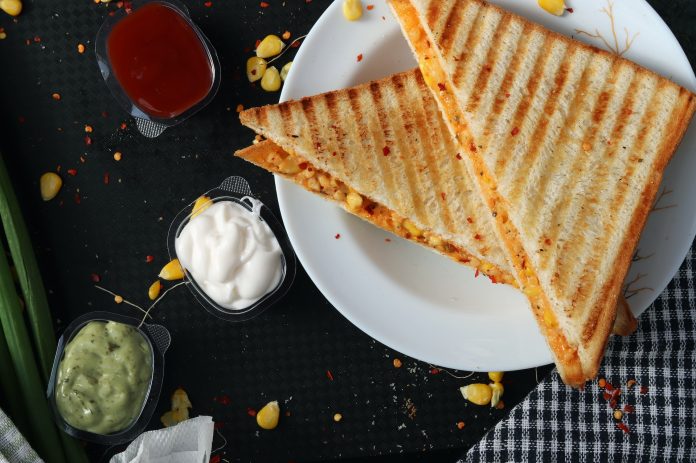It’s common knowledge that Value-Added Tax (VAT) applies to goods and services in the United Kingdom, but what many don’t realise is just how intricate the rules get when it comes to food and beverages.
For businesses in the hospitality, catering, or retail food sectors, understanding VAT can become a Byzantine maze. While it’s often essential to have an accountant to help you traverse general VAT complexities, specialised VAT accounting services can be especially beneficial when your trade involves food.
Companies like Pearl Lemon Accountants offer this level of expertise, but let’s set that aside for now and explore the puzzling world of VAT on food and drink and why professional advice is indispensable.
VAT on Food: A Culinary Puzzle
VAT on food isn’t as straightforward as slapping a standard 20% rate on everything edible. In fact, some food items are zero-rated, meaning they attract a 0% VAT rate. These typically include most raw foods, such as vegetables, meat, and fish, along with some cold takeaway items.
But Here’s Where It Gets Complicated
You would think that all cakes are created equal, at least from a tax perspective, right? Wrong. While cakes are generally zero-rated, if you’re selling a product that closely resembles a cake but is considered a luxury item (yes, the infamous Jaffa Cake debate), it may attract the standard VAT rate.
Drinks: A Glass Half Full or Half Empty?
The VAT treatment of beverages is equally mind-boggling. While tea, coffee, and milk are generally zero-rated, as soon as you add an element of ‘luxury’ to it—think flavoured milk or alcoholic beverages—you enter the realm of standard-rated VAT.
The Exceptions Rule
But don’t sigh in relief just yet. There are exceptions to these categories. For instance, sports drinks that claim to be beneficial for hydration are standard-rated, even though they may contain milk.
How VAT Accounting Services Come into Play
Avoiding Classification Woes
Is your product a cake or a biscuit? Is that smoothie a beverage or a meal replacement? These aren’t trivial questions, but crucial tax considerations that could significantly impact your bottom line.
Misclassifying an item could lead to undercharging VAT and thereby absorbing a cost you could legally pass on to the consumer. On the flip side, you could overcharge your customers and risk losing your competitive edge in the market. Furthermore, incorrect VAT classification can trigger penalties and audits, consuming valuable time and resources to rectify.
A VAT accountant brings not just accounting skills but a wealth of knowledge about these nuances. They can conduct a detailed analysis of your product range, diving into ingredients, preparation methods, and how the product is marketed and consumed. This thorough evaluation helps in precisely categorising each product according to HMRC’s complex guidelines.
In doing so, they protect you from potential financial and legal repercussions, while also identifying opportunities to apply lower VAT rates where possible. Therefore, when it comes to the complicated task of food and drink classification for VAT purposes, the specialised skills of a VAT accountant are not just a good idea—they’re essential.
Catering vs. Retail
If you operate a café, the VAT on your sales may differ based on whether the food is consumed on-site or taken away. This distinction may sound simple, but it opens up a web of intricacies that can affect your pricing structure, menu design, and even the layout of your establishment.
For instance, hot food served for immediate consumption attracts the standard VAT rate, but the same item may be zero-rated if it’s sold cold for takeaway. Conversely, some cold items could attract the standard rate if they are consumed within the café premises.
Such disparities in VAT treatment can significantly affect your revenue and profitability. Incorrectly applying VAT could either make your prices uncompetitive or lead to a shortfall in the revenue needed to cover VAT liabilities. It might also attract unwanted attention from tax authorities, leading to time-consuming and stressful audits that could ultimately result in fines or other penalties.
VAT accounting services can guide you through these nuances by undertaking a meticulous evaluation of your business model, including the types of food and drinks you offer and how they are usually consumed.
They can then advise on appropriate pricing strategies that account for VAT differences, ensuring that you’re neither overcharging your customers nor selling yourself short. They can also help implement effective point-of-sale systems that automatically adjust VAT based on consumption location, ensuring ongoing compliance without the need for constant manual oversight.
Periodic Reviews and Updates
VAT regulations and rates change. Specialised accountants keep tabs on any modifications and advise you accordingly, ensuring your business is always in compliance.
Claiming Back VAT
Did you know you could claim back VAT paid on certain business expenses, like equipment and raw materials? An accountant can streamline this process, helping you recover funds you may otherwise overlook.
A Recipe for VAT Success
Whether you’re selling gingerbread men, providing fine dining, or brewing artisan coffee, the VAT rules governing food and drink in the UK are nothing short of bewildering. With ongoing debates on the classification of food items and beverages, ever-changing VAT rates, and the considerable financial implications of getting it wrong, seeking professional advice is often not just beneficial but essential.
So, while it’s good to know companies like Pearl Lemon Accountants are out there to assist with such intricacies, the key takeaway is this: if you’re in the food and drink industry, having a specialised VAT accountant is not just another business expense. It’s an investment in ensuring that your business is compliant, efficient, and, most importantly, financially sound. In the complex world of food and drink VAT, a seasoned accountant is the best guide you can have.



 Bitcoin
Bitcoin  Ethereum
Ethereum  Tether
Tether  XRP
XRP  Solana
Solana  USDC
USDC  Cardano
Cardano  TRON
TRON  Lido Staked Ether
Lido Staked Ether  Toncoin
Toncoin  Avalanche
Avalanche